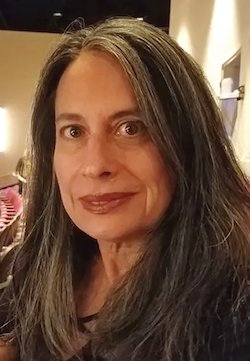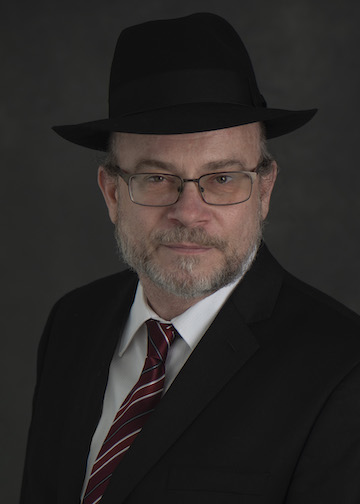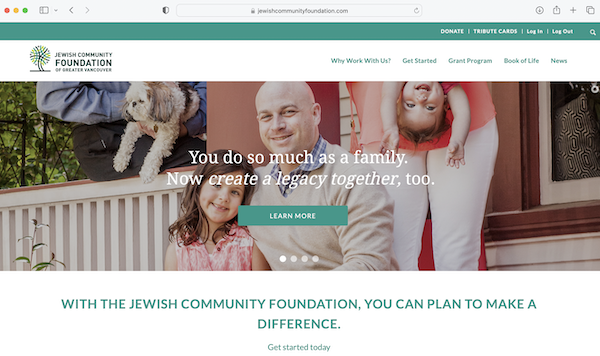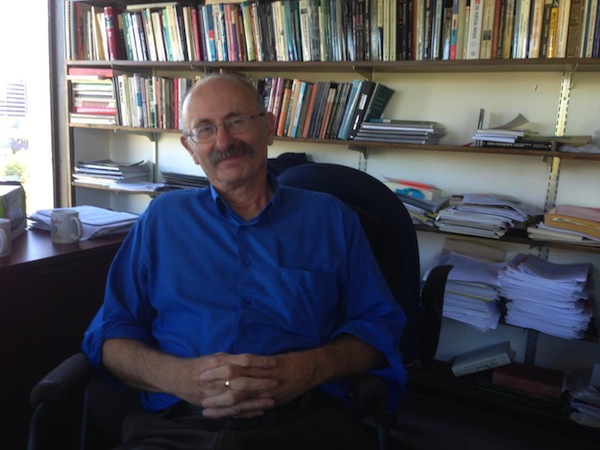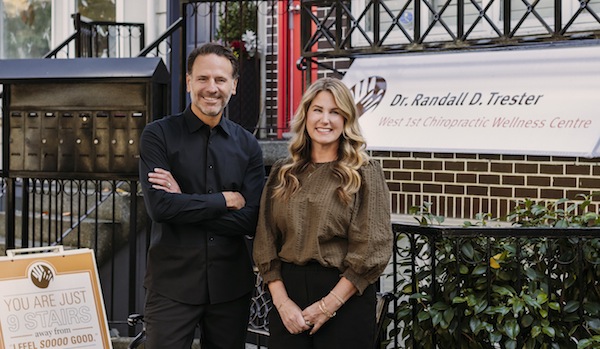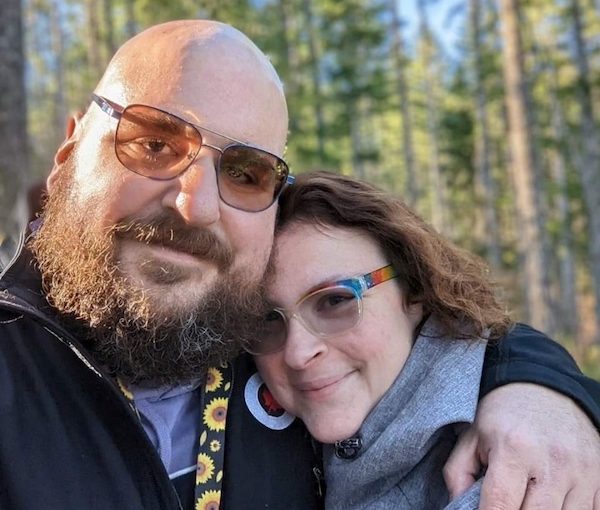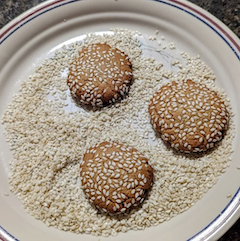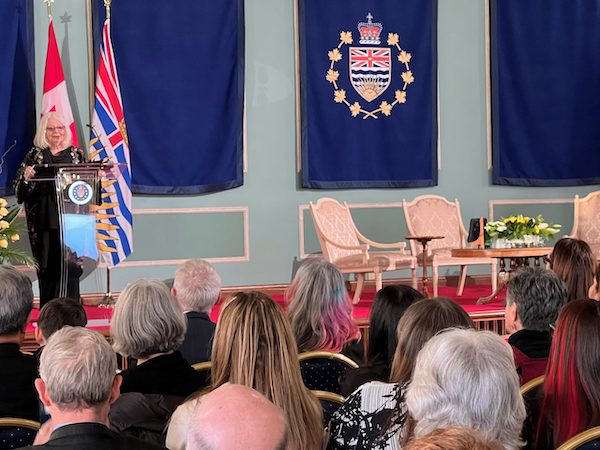Founding RJDS society members with their original photo: Cindy Rozen, left, Marvin Lithwick and Marilyn Jordan. (photo by Lianne Cohen Photography)
On March 19, the Richmond Jewish Day School (RJDS) gymnasium became a fancy ballroom as students, alumni, school parents past and present, staff and others reconnected and shared stories of the “small community school with big dreams” as RJDS marks its 30th anniversary. The event was one of a series this spring to celebrate the special year.
According to Cindy Rozen, who helped start RJDS, the impetus to build a Jewish day school in Richmond sprang from a 1989 report by the Jewish Federation of Greater Vancouver, which identified such a need in the southwest metropolitan area. A group of parents in Richmond convened and planned to implement a shared vision that their children should receive both a quality secular and Jewish education, believing it vital to reinforce Jewish values and traditions.
“Starting a day school is fraught with many major challenges, such as finding funding, a location, students, hiring teachers, designing a curriculum, etc.,” Rozen said. “But, with the hard work and determination of the founding board members, the support of the Jewish community in Richmond and Jewish Federation – and, in particular, Ted Zacks and Bernard Pinsky – RJDS opened its doors.”
As Shael Wilder, the first school board president, said in a short movie created by Heirloom Films in 2013 about RJDS’s early days, “We used to joke we were planning to open a Jewish day school with the minor obstacles of having no premises, no prospective students, no teachers, no administrative staff and no money.”
RJDS’s first classes were taught in September 1992 in a single modular building situated in the parking lot of Congregation Beth Tikvah. There were 52 students, and it went from kindergarten through Grade 3. The school’s founders – which included Rozen, Wilder, Joan Cohen, Beverly Imerman, Bev Davis, Marilyn Jordan, Rabbi Martin Cohen, Marilyn Berger, Rozanne Kipnes, Marvin Lithwick and Faye Elias – were dedicated to seeing RJDS continue to grow.
In 1998, the school moved to its current location on No. 5 Road, with more grades added in subsequent years. The modular building was brought to the site as well and, today, renovated and refurbished, it houses the RJDS Early Learning Centre.
Throughout its history, the school has welcomed hundreds of students from diverse backgrounds and experiences, added new programs and services, and transformed in ways that could not have been imagined 30 years ago.
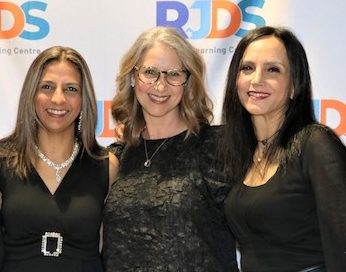
“Through it all, the school has remained steadfast in our commitment to our core values. We believe that every student has the potential to achieve greatness, and we are dedicated to helping them reach their full potential by providing them with the tools, resources and support they need to succeed, in a caring and collaborative environment,” said RJDS principal Sabrina Bhojani in a speech at the March celebration. “Additionally, our commitment to Jewish values and traditions has remained a constant. Through a strong Jewish education, students can develop a deep and meaningful connection to their personal identity, the Hebrew language and the traditions and customs of their culture.”
Bhojani emphasized, “We believe that a strong and supportive community is essential to the success and well-being of our students, and we work hard to foster this sense of community through our haimish [homey] environment each and every day.”
From weekly Shabbat celebrations to annual school-wide holiday events, Bhojani said RJDS is continually exploring means to bring students, staff and families together in relevant and purposeful ways. “We believe that these connections are not only important for our students’ academic success, but also for their emotional and spiritual well-being. Over the years, this community has cared for one another through good times and bad. We have watched our students grow and thrive, and we have celebrated their achievements and milestones as if they were our own children,” she said.
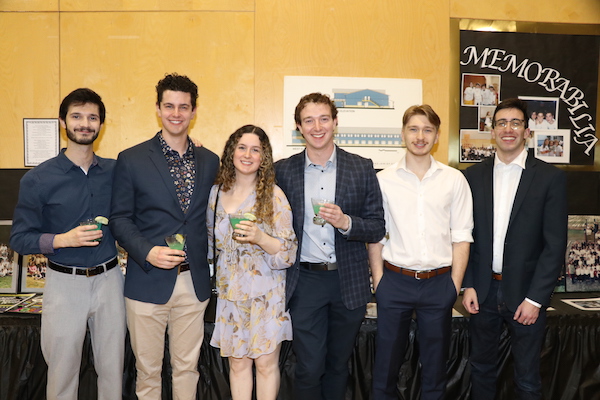
Looking ahead, Bhojani said the school is excited to keep building on the strong foundation it has established over the past 30 years. “We are committed to staying at the forefront of educational innovation, to providing our students with the tools and skills they need to succeed in a rapidly changing world, and to fostering a strong sense of community and connection to Jewish values and identity,” she said.
“Although those first students did not have a proper building, gym or even computers, they all continued on to higher education,” noted Rozen. “Today, they are contributing to communities, both here in Canada and around the world – in the U.S., Israel, Europe and even India. We are so proud that, 30 years later, RJDS continues to enrich the lives of so many children who are our future.”
Reesa Pawer served as co-chair for the RJDS 30th birthday planning committee, with Batsheva Michaeli, Lisa Altow and Rinata Yaffe as committee members.
Sam Margolis has written for the Globe and Mail, the National Post, UPI and MSNBC.


